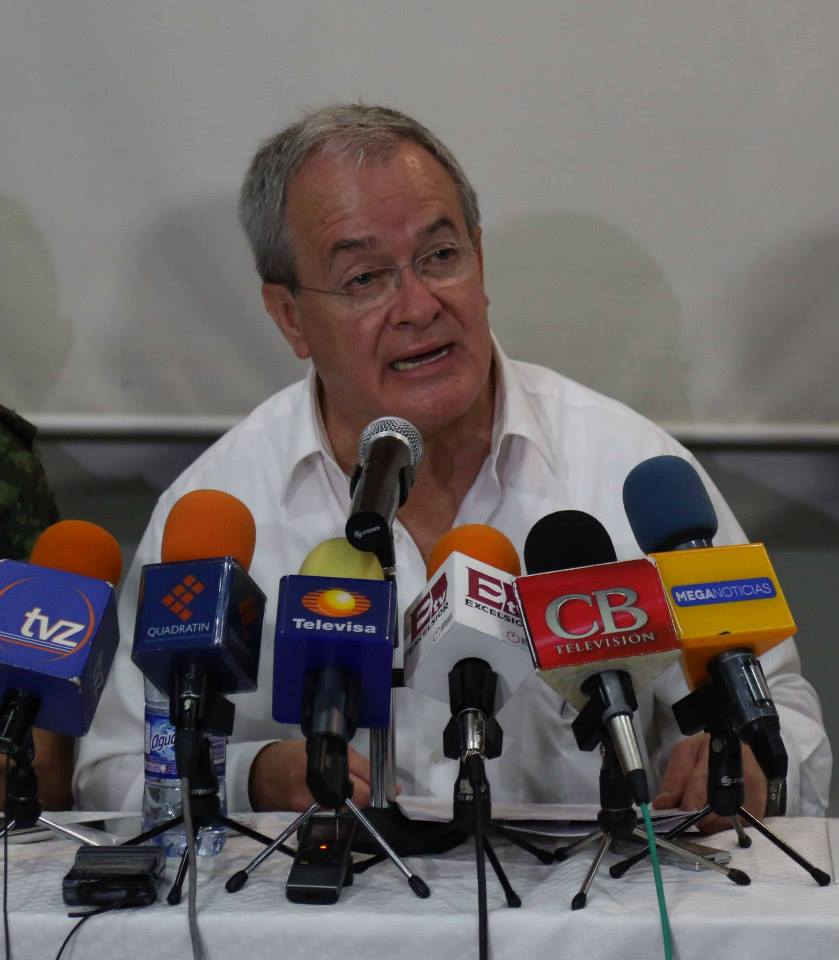
EspañolPanama, the “Dubai of the Americas,” as it is sometimes called, seemingly has it all. Boasting one of the most important free-trade zones in the world, along with an enviable regional financial center, this Central American country has had years of incredible GDP growth, a relatively good ranking on the Social Progress Index, and significant advances in the expansion of one of its key assets, the Panama Canal.
Yet, Panamanians, by and large, feel something is amiss.
What could possibly be going wrong in a country that weathered the Great Recession almost unharmed, and that has one of the lowest unemployment figures in the world? To quote James Carville: “It’s the economy, stupid.”
According to the National Institute of Statistics and Census (INEC), Panama grew, on average, 6.84 percent during the 2009-2014 period, with 2011 and 2012 being the most impressive years at 10.8 percent and 10.2 percent growth respectively.
This was the period in which former president Ricardo Martinelli was in office. And it also coincides with a period that will most likely go down in history as one of the most corrupt and heavy in cronyism this country has ever seen. These are some of the reasons why the current administration, led by President Juan Carlos Varela (who was Martinelli’s vice president), has been trying to restore the public’s confidence in civil servants, rule of law, and republican institutions. And so far, he has done a good job.
Former ministers and other members of Martinelli’s government have been questioned, which has pleased the general public. A former Supreme Court Judge went to trial and was found guilty. This was the first high-profile case that Panamanians have witnessed in a long time. Even Martinelli himself is waiting in line. The Supreme Court is currently investigating him due to his involvement in a scandal related to the national social-assistance program, Programa de Ayuda Nacional (PAN).
The consensus indicates the public approves of the investigations. After all, solid republican institutions and respect for a clear and impartial rule of law are necessary for a sound economy in which investment, both national and foreign, can thrive and generate sustainable prosperity. But, as mentioned above, is is precisely this economy that appears to worry Panamanians.
No matter whom you ask, they will most likely tell you the economy is “stuck.” This perception isn’t necessarily false, depending on how you look at things. During the first quarter of 2015, public spending — capital expenditure in particular — fell 40.7 percent in comparison to the same period last year.
This is troublesome, given that during Martinelli’s administration, public expenditure on infrastructure was considered a driving force behind the economic boom experienced in the country. And who could argue otherwise? New roads were being paved, older ones were being fixed, and a brand new subway, the first in all of Central America, was under construction. The caveat, however, is that most, if not all of these projects, and many others as well, were financed through debt.
Thus, public debt reached heights never seen before. Given that GDP figures consider government spending a “good thing,” the perception that everything was going well was further boosted. But GDP, like any other statistic, can be easily misinterpreted due to its own nature, and can distort our view and comprehension of the economy. And the way the debt used by Martinelli was accounted for allowed the bill to be put off until way after the party was over.
President Varela’s administration, however, has not been particularly kind to businesses in general. Immediately after stepping into office, Varela signed a law which established price controls on 22 basic goods, such as rice, onions, and certain meats.
He has also raised taxes on raw materials used for construction, even though he promised he wouldn’t increase existing taxes or create new ones. Moreover, he owes millions of dollars to farmers, and has kept several construction and occupancy permits on standby.
Representatives from the largest business unions, such the tourism industry, the agricultural sector, and several economists, among others, have all voiced their concerns, and it seems as if the government is willing to sit down and talk with them. Yet, so far, nothing has been set in stone.
Making matters worse, the National Assembly has been proposing laws that run against economic and business freedom, such as price controls on private parking garages, price and regulatory controls on private schools, and strict migratory restrictions. These are all terribly bad ideas, especially given that the public education system in Panama is a disaster, and there is a lack of well-prepared workers in the country.
Foreigners, particularly from Nicaragua, Venezuela, and Colombia, have been filling the gap, but things are likely to get much worse in this regard. If migratory restrictions become too severe, companies will not be able to fill their vacancies and opt to migrate their businesses to countries that are able to provide the resources they need to operate profitably.
As businessmen in Panama have been saying all along, the Varela administration needs to realize that the private sector is the government’s biggest ally. It provides the majority of jobs in the country, therefore paying, directly and indirectly, the taxes needed to keep the government running and supply the subsidies and social-assistance programs currently in place. President Varela, a businessman himself, must already know this on some level.
Nevertheless, he continues to work against the best interests of the economy. Of course, the president must help strengthen Panama’s republican institutions and the rule of law, but he must also step aside and let the private sector do what it does best: solve problems, generate wealth, and improve the standard of living for the residents of the so-called Dubai of the Americas.
 Versión Español
Versión Español













